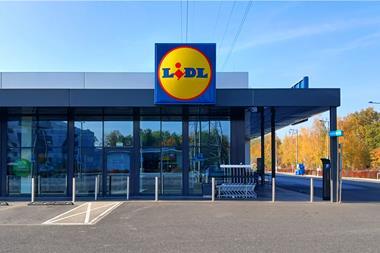Despite advances in technology, people are still the most vital element of an organisation, says Laurent Homeyer, strategic industry advisor for retail and hospitality at Workday
The retail industry has had its share of setbacks in recent years. For bricks-and-mortar stores the combined pressure of high rents, lower consumer spending and intensifying online competition has presented a particularly intense set of challenges. As it so often does, however, the industry has innovated its way through.
In the main, investments have been shrewd and necessary, with a focus on improving market share and basket size. As the pandemic hit, retail operations globally needed to radically change their operations, sometimes overnight. Technology suddenly became absolutely mission critical in the quest to adapt to drastically shortened planning cycles with far greater agility.

The rates at which retailers had adopted technology before the pandemic often affected how well they were able to deal with these huge shifts. Those who were already on their journey towards being omnichannel-ready were better placed to be truly agile, whereas those who had yet to invest, often struggled to adapt.
“The pandemic has taught us all that technology is only one piece of the puzzle”
The right technology enabled retailers to respond with lightning speed to lockdowns. But, among other hard lessons, the pandemic has taught us all that technology is only one piece of the puzzle. Solving these problems also involves new processes, a new mindset and, crucially, upskilling and sometimes reskilling the team.
The role of retail staff

As Amazon’s experiments have shown, cashier-less stores may enable retailers to run their operations with fewer staff, but people are still vital to swiftly respond to customers’ needs. In the UK, the supermarket chain Sainsbury’s recruited 12,000 members of staff to pick, pack and deliver online grocery orders in December 2020, half of which were on a permanent basis. Technology is, of course, critical in helping retailers to navigate this changing world of work, enabling them to effectively recruit, redeploy, reskill and upskill employees to support the business as new needs arise.
The importance of service
Retailers know that customer service is absolutely critical. At the same time as retailers implement new technologies and processes, particularly as they adapt to the Covid-19 crisis, they need to ensure their people know their way around new technology. For example, retailers may implement digital selling tools, but on their own they will not be effective if staff are not trained on how to use them. Right now, I would argue that retail staff need to be trained so they gain a broader view of their own role in the customer journey – a complex but essential process.
A brave new world for retail
The current emphasis on digital-first customer journeys and contactless operations will have repercussions on workforce skills. There is likely to be a battle in the retail sector as retailers seek out the digital skills needed to draw up future solutions when it comes to ecommerce, social media, automation and artificial intelligence. We’ll see a big increase in remote working but there will also be a need for staff on the shop floor to get to grips with new tools, new processes and critical health and safety requirements.
According to the World Economic Forum, by 2022 42% of core skills required to perform existing jobs are expected to change. This is now about more than just a shift to remote work – or the role of technology and automation. It’s about how leaders can reskill and upskill the workforce to deliver new business models in the post-pandemic era.
The retail industry is finding that there is huge value in the human resources they already have. Taking maximum advantage of the skills in their organisation and training staff in new areas will be critical if they are to become truly agile now and in the future.
Laurent Homeyer is strategic industry advisor, retail and hospitality, at Workday

Laurent Homeyer is strategic industry advisor at Workday in charge of the distribution and hospitality industries for the EMEA region. He joined Workday in 2018 to take charge of the development of these sectors at the international level. Before joining Workday, Homeyer held the position of director, innovation and value, retail and wholesale, within SAP France. He also held positions as product director at Symphony RetailAI.




























